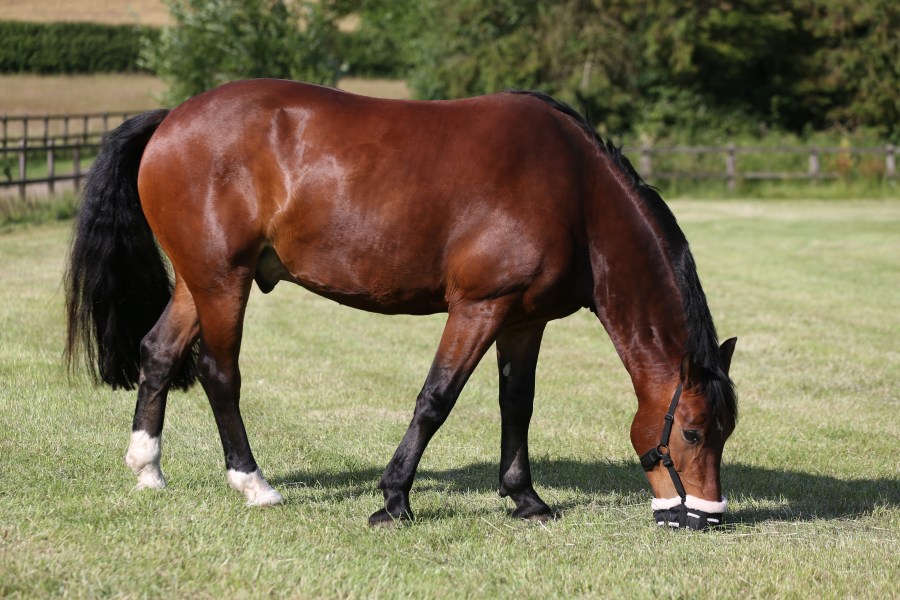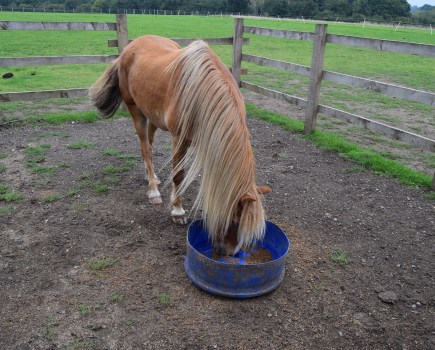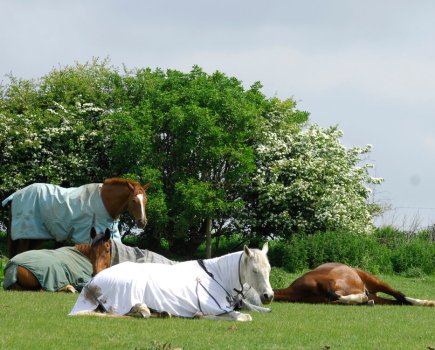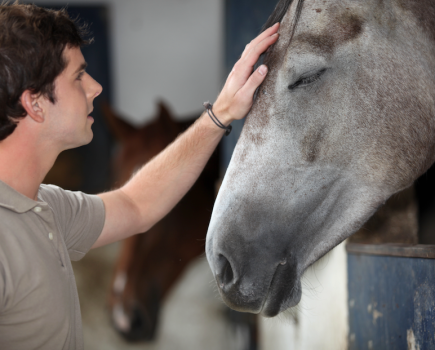In partnership with SPILLERS™
Grazing muzzles have been shown to reduce grass intake by approximately 80% in ponies which make them a good option to help keep a good doer’s waistline in check. If you’re considering using a grazing muzzle for your horse or pony, you may be wondering how effective they are and whether they are suitable for use all-year round. In our grazing muzzle video series, we answer these questions as well as provide some important safety advice.
Grazing muzzle – success rates
Learn about the study that was carried out in collaboration with SPILLERS™ which concluded that grass intake was reduced by approximately 80% in ponies which were wearing a grazing muzzle.
Grazing muzzles – seasonal usage
Is a grazing muzzle just as effective in the autumn or winter as it is in spring and summer? This video shares the results of a study carried out in collaboration with SPILLERS™, which set out to help answer this very question!
Grazing muzzle – safety advice
If used correctly, grazing muzzles may provide a safe and effective way of restricting grass intake and allow overweight horses and ponies to be turned out for longer. If you’re considering using a grazing muzzle for the first time, it’s important to follow the safety advice provided in this video or outlined below:
- Introduce your horse to wearing a muzzle gradually and make sure he is happy to graze and drink before leaving him unsupervised.
- Look out for signs of rubbing or discomfort.
- Check your muzzle regularly for signs of wear and tear.
- Monitor your horse’s behaviour for signs of distress and/ or frustration.
- Look out for signs of bullying.
- Check the length of your grass – if it is too long or too short your horse/ pony may not be able to graze at all while wearing a muzzle.
- Muzzles should not be left on 24/7, even in horses and ponies used to wearing them.
- Monitor your horse or pony’s condition regularly to ensure they are not losing or gaining excess weight.
- Long term use of a grazing muzzle may cause your horse or pony’s teeth to wear unevenly so make sure they are checked regularly by your vet or an equine dental technician.
Will my horse/pony eat more when I remove their muzzle?
As this video explains, individual horses and ponies respond differently so careful monitoring is key!
While only using a muzzle for part of the horse/ pony’s time at pasture may be a useful strategy for some, others will simply eat more once their muzzle has been removed and may gain weight! For this reason, consider stabling or non-grass turnout rather than turning your horse back to pasture after removing their muzzle.
If you care for an overweight horse or pony and would like to receive tailored diet and management advice, you can contact the SPILLERS™ Care-line on 01908 226626 or visit www.spillers-feeds.com.
![]() Have you heard about Your Horse’s #FitNotFat campaign? Equine obesity is an enormous welfare problem and we’re on a mission to provide owners and riders with the knowledge, skills and information you need to keep your horse in tip-top health. It could be life saving! Find out more
Have you heard about Your Horse’s #FitNotFat campaign? Equine obesity is an enormous welfare problem and we’re on a mission to provide owners and riders with the knowledge, skills and information you need to keep your horse in tip-top health. It could be life saving! Find out more
Check out our subscription offer









